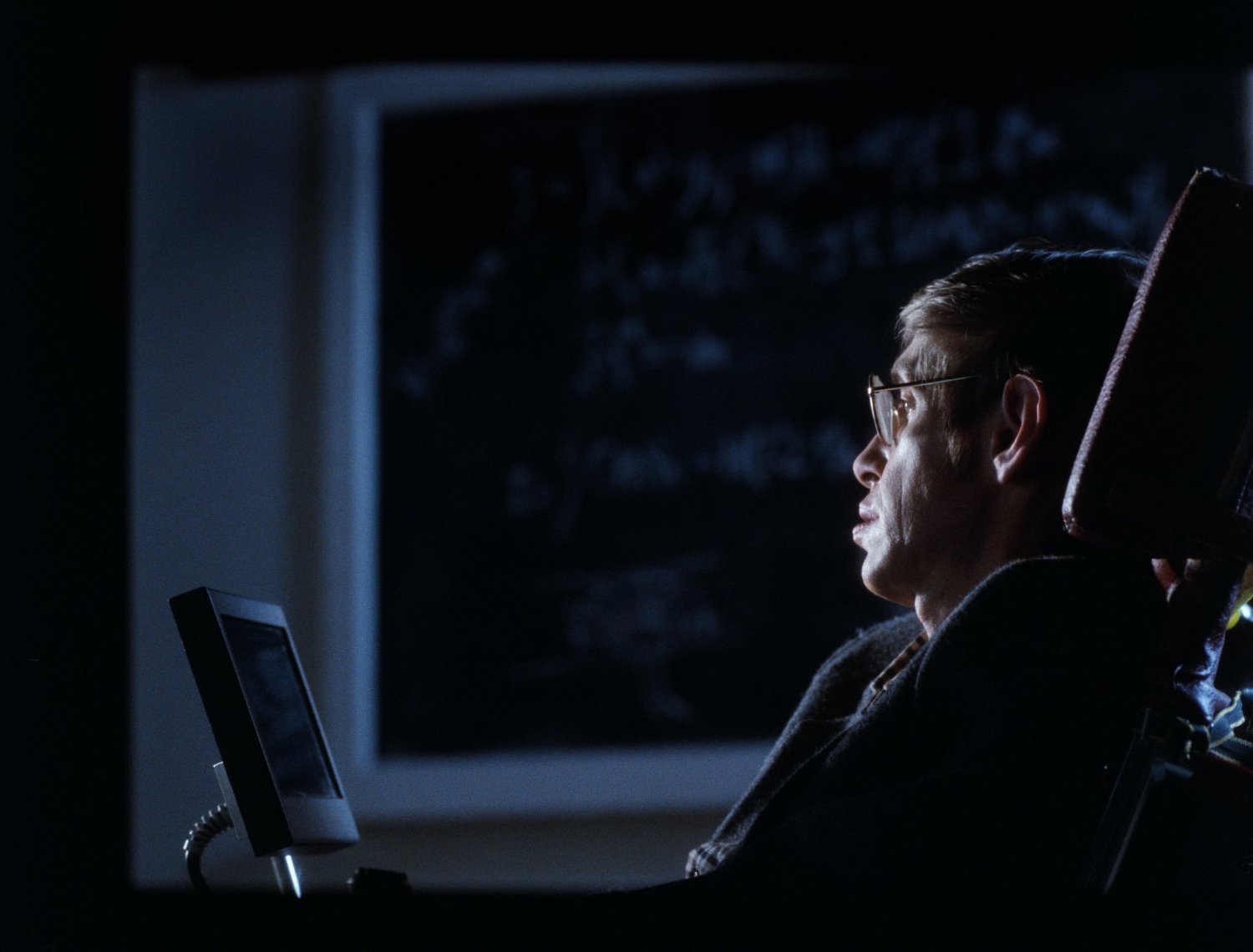Errol Morris’s A Brief History of Time isn’t quite as literal a title as one might expect even from a filmmaker with an academic background in the philosophy of science. This isn’t a direct adaptation of the eponymous bestseller, with Stephen Hawking simplifying science in computerized voiceover alongside minimalist illustrations and cyclical Philip Glass score. Morris inherently understood that such dense theory is best delivered in a visual medium that allows for long, articulated written explanations, and that even his own cerebral filmmaking couldn’t accommodate ease of understanding. Certainly, some of the science is explained in Brief History by the physicist subjects, but in such a way as to arouse a non-specialist’s curiosity, present only to underscore the metaphorical qualities of cosmological concepts.
Morris has always been more curious about the strange, nearly impossible ranges of human experience instead of nitty-gritty science. In Gates of Heaven, he focused on his subjects’ intense grief for loved ones who weren’t human, but animals, pets that inevitably made their owners wonder about death itself. And The Thin Blue Line pinpoints the degree to which unscrupulous people can fabricate their own version of reality to obscure a real truth. Consistently through his work, Morris demonstrates that he’s a humanitarian filmmaker, even if his films can feel cold, calculating, and at turns ironic.
In A Brief History of Time, such flashes of humor are scant but sufficient: When Hawking asks if the chicken or the egg came first in relation to what came before the universe, a moving image of a chicken head appears suspended in outer space. These little touches are complementary to the film’s inner minimalism: its dark lighting, the ever-present clicks of Hawking’s computer interface, and the quiet murmurs of Glass’s score.
The mute, immobile Hawking’s humanity forms the film’s core, and as colorful biographical detail is provided by family, school peers, and colleagues, the narrative works in a brief history of Hawking’s life and slyly weaves together the figurative qualities of cosmology with the man’s struggle with amyotrophic lateral sclerosis (ALS). The film argues that Hawking’s physical abilities may have been so acutely affected by ALS as to significantly diminish his quality of life in the decades following his diagnosis (the initial prognosis was two-to-three years to live), and yet his intellectual abilities continued to expand—much like the universe.
This isn’t merely a cute linkage between Hawking’s explanations of the fate of the universe and his own future compromised by ALS. Morris’s reading of Hawking’s A Brief History of Time is that it is as much a popular science book as it is an inadvertent autobiography. In his writing, Hawking’s evocative imagery of black holes and nothingness serve as elegant, metaphorical descriptions of his ailment and the diminished quality of his physical life. Yet instead of finding nothing in dark matter, Hawking found himself.
IMAGE / SOUND:
As a follow-up to the groundbreaking The Thin Blue Line, the more modest A Brief History of Time seemed destined to become its own kind of dark matter, a forgotten gem waiting for re-release. The Blu-ray so impeccably nails down the visual detail of the film—cinematographer John Bailey’s sculpturing of light and shadow and the glistening azure of the staged sets—that one is held rapt by the screen image. The sound quality is equally rich, and striking in the intentional contrast between the soothing orchestral score and the hypnotic effect of Stephen Hawking’s speech synthesizer.
EXTRAS:
There are only a few extras on Criterion’s release of A Brief History of Time: separate interviews with Errol Morris and cinematographer John Bailey (recorded last autumn) and a booklet featuring an informative contextual piece by David Sterritt and excerpts from Hawking’s 2013 memoir My Brief History and 1988’s A Brief History of Time. As if boldly acknowledging the strength of its few supplements, Criterion simply lists the two interviews in the main menu instead of the usual “Supplements” dropdown option. And rightly so, as the interviews are illuminating and entertaining enough to stand on their own, particularly Morris’s funny impressions and anecdotes of Hawking.
OVERALL:
Minimalist and heartwarming, Errol Morris’s A Brief History in Time is a bold, poignant visualization of a brilliant man and a brilliant life.

